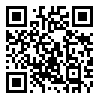مجله رویش روانشناسی از دادن گواهیهای کاغذی معذور است. لطفا تقاضا نکنید. همه گواهی ها در صفحه شخصی کاربران موجود است.
year 11, Issue 8 (autumn 2022 2022)
Rooyesh 2022, 11(8): 79-90 |
Back to browse issues page
Download citation:
BibTeX | RIS | EndNote | Medlars | ProCite | Reference Manager | RefWorks
Send citation to:



BibTeX | RIS | EndNote | Medlars | ProCite | Reference Manager | RefWorks
Send citation to:
Salarifar M, Dasht Bozorgi Z, Jadidi M. (2022). Comparing the Effectiveness of Imagotherapy Psychological Training and Acceptance and Commitment Therapy on Improving the Communication Patterns of Couples Seeking Divorce. Rooyesh. 11(8), 79-90.
URL: http://frooyesh.ir/article-1-3688-en.html
URL: http://frooyesh.ir/article-1-3688-en.html
1- PhD Student of Counseling, Tonekabon Branch, Islamic Azad University, Tonekabon, Iran.
2- Assistant Professor, Department of Psychology, Ahvaz Branch, Islamic Azad University, Ahvaz, Iran. ,Zahradb12000@yahoo.com
3- Associate Professor, Department of Psychology, Shahr-e Qods Branch, Islamic Azad University, Shahr-e Qods, Iran.
2- Assistant Professor, Department of Psychology, Ahvaz Branch, Islamic Azad University, Ahvaz, Iran. ,
3- Associate Professor, Department of Psychology, Shahr-e Qods Branch, Islamic Azad University, Shahr-e Qods, Iran.
Abstract: (2271 Views)
This study aimed to compare the effectiveness of psychological imago therapy training and acceptance and commitment therapy on improving the communication patterns of couples seeking a divorce. The statistical population comprised all couples who were referred to family counseling centers in Babol in 2021. 45 couples were selected by the available sampling method and randomly assigned to three groups imago therapy, acceptance and commitment therapy, and control. The Communication Patterns Questionnaire (CPQ) (Christensen and Salawii, 1984) was used to collect data. Imago therapy and acceptance and commitment therapy protocols were performed for the experimental groups. Data were then analyzed using repeated measures and multivariate analysis of variance using SPSSV22 software. The results of repeated measurement variance analysis showed that there is a significant difference between the groups in the post-test and follow-up communication patterns (P<0.01). Both interventions had an effect on communication patterns, but no significant difference was observed between the two interventions in any of the communication patterns (P>0.05). Moreover, these results continued until the follow-up stage. In accordance with the result, it can be mentioned that both imago therapy and acceptance and commitment therapy are effective in couples' communication patterns.
Type of Article: Research |
Subject:
Family Psychology
Received: 2022/03/13 | Accepted: 2022/09/4 | ePublished: 2022/11/1
Received: 2022/03/13 | Accepted: 2022/09/4 | ePublished: 2022/11/1
Send email to the article author
| Rights and permissions | |
 |
This work is licensed under a Creative Commons Attribution-NonCommercial 4.0 International License. |







